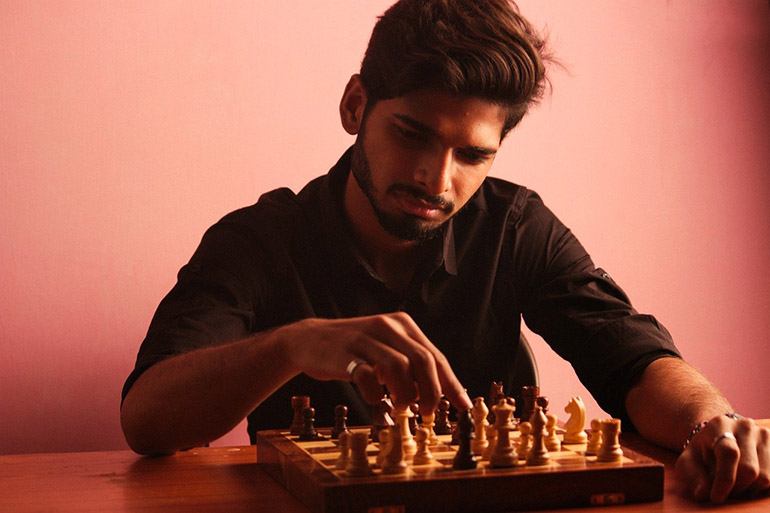by cutter slagle –

A very wise girl once couldn’t help but wonder: “Maybe mistakes are what make our fate?” Obviously, the girl in question is Carrie Bradshaw. If you don’t know who she is, stop what you’re doing immediately and binge-watch all 94 episodes of Sex and the City. They’re available on HBO. It’s not like you don’t have the time. Also, if you’re unfamiliar with Ms. Bradshaw, then you might want to reconsider whether or not you’re gay.
It’s important to understand that everyone makes mistakes. Perhaps you briefly considered voting for Donald Trump or gave yourself a haircut while in quarantine. See, mistakes: They come in all shapes and sizes, and they haunt all of us. The biggest mistake I’ve ever made? Probably thinking I could pull off bib overalls when I was in my late twenties. Or, you know, believing him when he said, “It’s bigger in person.”
The point is, adulting is synonymous with mistaking. Unfortunately, we’re never really taught that in school. Sure, we learn how to write in cursive, the various elements of the periodic table and the best way to solve the square root of 669 (hint: use a calculator) . . . Important, need-to-know lessons that continuously pop up in our daily adult lives and help shape who we become.
Wait a second! When was the last time—post-college—you were expected to know the atomic number or symbol for Curium? Okay, if you’re Albert Einstein, you get a pass. Though, I highly doubt he’s reading my column because he’s, well, dead.
One of the most valuable and significant lessons we’re forced to learn on our own, after we enter the real world (i.e. adulthood), is what it truly means to make a mistake and then learn from that mistake. And I’m not simply talking about the difference between right and wrong. It’s common knowledge what’s right in this world: Britney Spears. And what’s wrong: Trump.
No, I’m talking about something much deeper when I refer to a “mistake.” If you think about it, mistakes are kind of like backward compliments, as they have a dual meaning. For example, at the moment we make that mistake, we often feel as if our lives could possibly end. However, we eventually see that the mistake was actually a blessing, a necessary incident that later allowed us to grow.
For example, at the moment we make that mistake, we often feel as if our lives could possibly end. However, we eventually see that the mistake was actually a blessing, a necessary incident that later allowed us to grow.“
It’s unrealistic to consider mistakes without bringing up regrets. The two go hand-in-hand. Making a mistake often leads to a feeling of regret. Regrets are like anchors: When you collect enough of them, they will cause you to sink.
It’s definitely easier said than done, but if possible, much better to go through life without holding onto regrets. Why? Regretting an event or decision—a mistake, if you will—will not change the fact that it happened. The only logical thing to do after making a mistake is to learn from it, move on, and keep living. Oh, and understand and accept that you will make many more mistakes throughout your life.
In a way, mistakes are blessings. Without them, how would we know anything about ourselves? Of course, there are certain mistakes in life that no one comes back from: Chinese symbol tattoos, Crocs, bangs. Yet, minus a handful of examples, most mistakes are signs that we have officially entered adulthood and are now trying to navigate our lives. Remember, no GPS or Waze is instructing us when to turn right or left; wrong turns are inevitable. Instead of fighting them, we should embrace them.
Perhaps we’re never taught about making mistakes because the only way we can effectively learn the lesson they provide is to experience them. Don’t misconstrue my words. I’m not saying that everything happens for a reason. I mean, what could possibly be the reason for any Jack Black movie?
What I’m saying is that what’s done is done. The only smart, adult thing to do regarding past decisions (again, mistakes) is to learn from them. It’s kind of like this: You can’t get to C without first passing by A and B. Well, sometimes you can’t fully enjoy the wonderful aspects of life without seeing the undesired parts. In a way, the two are connected. Like Oprah and Gayle. When you finally understand and come to terms with the idea that mistakes are prerequisites of life, not only will you officially be an adult, but you’ll also be able to fully appreciate your journey.
Cutter Slagle is the published author of suspense, horror, and crime fiction works. You can visit his website at cutterslagle.com for updates on his writing.
